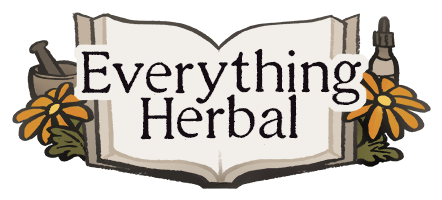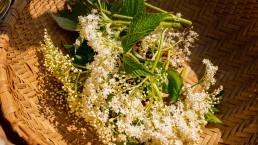Herbal Actions: Diaphoretics
Herbal Actions
What is a “herbal action”?
When we speak about the action(s) of a certain plant, we are referring to one or more effects a plant can have on our body. Often these actions are explained in two or three words; however, herbal actions are so much more than that! Since plants are wonderful complex beings, they also have several actions. Most herbs can compliment their action(s) in combination with another herb, basically showing off their best side with the support of a “good friend”. Sometimes they work great on their own, but most of the times, they excel with a good buddy on their side. Think- Teamwork!
Diaphoretics
The time of the year has come where many of us start to layer up again. Our hands and feet feel constantly cold, and the two pairs of socks we are wearing don’t seem to do anything. Additionally, our hands are freezing and all we wish for is a hot water bottle attached right to our bodies, tied down tightly with a warm woolly shawl. Believe me, I know what I am talking about…
Perhaps you think, this is not me! Despite the cooler temperatures outside, you just can’t seem to escape the heat. Just the thought of a hot water bottle is making you perspirate…
In this blog, let’s talk about diaphoretics and how they are not only helpful to both the extreme cold and the extreme hot of us, but also, how they can:
- Support the skin in its role as organ of elimination
- Stimulate outward circulation
- Relax tightly closed pores
- Stimulate the immune response and support the bodies natural fever response
Diaphoretics and the Skin
If you have a close look at your skin, you can see that the surface of it appears to be like a tiny little mosaic – not completely smooth like glass, but uncountable small sections with hair follicles and pores. Sometimes, the surface can look quite rough, with many small eruptions that can cause a certain area to develop a rash. This could be a heat rash, caused by sweat that is trapped in the skin or any other superficial rash. With any skin eruption, it is important to source out the root cause and treat it as a whole, as often times it can be a sign of insufficiently working organs of elimination. diaphoretics, however, are a great complimentary way of supporting our skin in healing a rash, while addressing the root cause altogether simultaneously.
If a rash is associated with tightly closed pores, we can help opening them up by using a stimulating and relaxant diaphoretic. Using some gentle alteratives in combination with Diaphoretics, is always a good idea.
Fevers and Stimulating the Immune Response
Some of you might be familiar with using diaphoretics during a fever. Starting at the first sign of a cold or flu, start drinking a hot tea with a diaphoretic blend including herbs such as Elderflowers, Linden flowers, Catnip and Peppermint. Let me put some special emphasis on the heat, as only hot liquids can act as diaphoretics. Many cold diaphoretic herbs will act more as a diuretic, which enhance the drainage of tissue fluid and increase urination.
By exciting our sweat glands, our metabolic activity is stimulated which at the same time, is alerting our immune system to ramp up. Through our skin, toxins can be removed, which can indirectly lower a fever.
Not only can it help to ease the signs and symptoms, but it can also help to drive out a fever. A fever is the bodies natural response to dealing with pathogens. It is important to keep a close eye on the temperature, as a out of hand fever can be quite detrimental. In most cases however, our body is doing an excellent job of killing the pathogens all on their own. By using diaphoretics, we can help generate that heat, stimulate circulation and take the heat from the core of the body and bring it to the periphery. While promoting perspiration, it is incredibly important to stay properly hydrated. Drinking lots and lots of hot tea, water and strengthening bone broth are of upmost importance.
Stimulating and Relaxing Diaphoretics
In general, all diaphoretics promote perspiration by opening up the pores of the skin, and even though it might seem we have to pick either of the two, stimulating and relaxing diaphoretics work best when used in conjunction.
- Stimulating diaphoretics act as a circulatory stimulant. By opening up the capillary beds, they help to bring up the heat up to the surface. For individuals with a cold constitution, this will help to circulate some heat to the periphery. For anyone experiencing hot flashes or are generally of a hotter constitution, it helps to bring the core heat that is stuck on the inside to the outer surface. This is why in most warm climate zones, people tend to enjoy their hot and spicy foods!
Examples of stimulating diaphoretics are: Zingiber officinalis (Ginger), Capsicum annuum (Cayenne) or Achillea millefolium (Yarrow).
- Relaxing diaphoretics help to loosen tight, tense tissues. If your pores are closed tightly, the skin is dry and tense and lacks proper hydration in the form of water and oil or if you just can’t get a good sweat, it might a great idea to add relaxing diaphoretics.
Examples of relaxing diaphoretics are: Tilia europea (Linden flowers), Sambucus nigra (Elder flowers) or Nepeta cataria (Catnip).
I hope this post gave you a little insight on diaphoretics and how they can interact with our body. This topic is covered much more in depth in the herbal course, which is currently developed and coming soon by our group of wonderful herbalists.
Resources:
Besides my own words, this write up features information from the following resources:
– Ursel Buehring Praxis- Lehrbuch Heilpflanzenkunde – Grundlagen – Anwendung – Therapie. 4 ueberarbeitete Auflage. Karl F. Haug Verlag in MVS Medizinverlage Stuttgart GmbH & Co. KG’ 70469 Stuttgart, Germany. 2014. (Published in German language)
– Jim McDonald – Foundational Herbcraft – www.herbcradft.org – collected writings from www.PlantHealkerMagazine.com.
– Lisa Ganora – The action formula – PDF – 2015
– David Hoffmann – Medicinal Herbalism: The science and practice of herbal medicine. Healing Art Press, Rochester, Vermont 05767. 2003.

